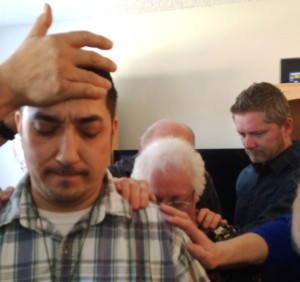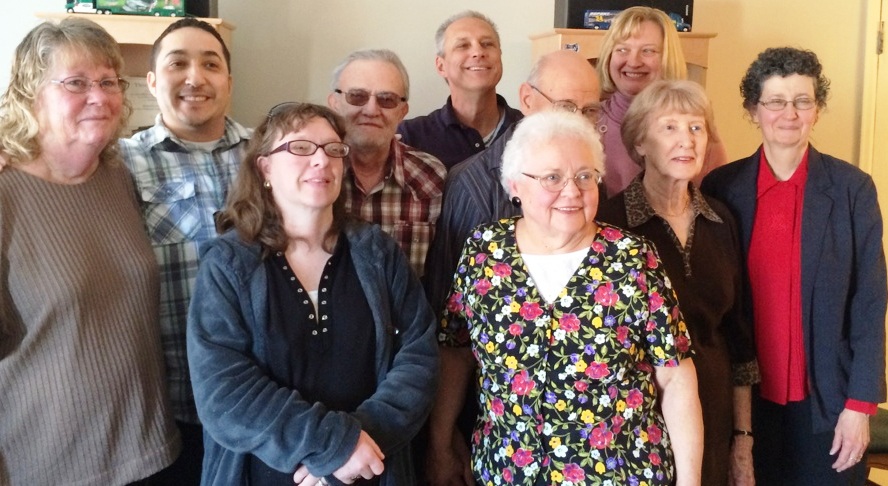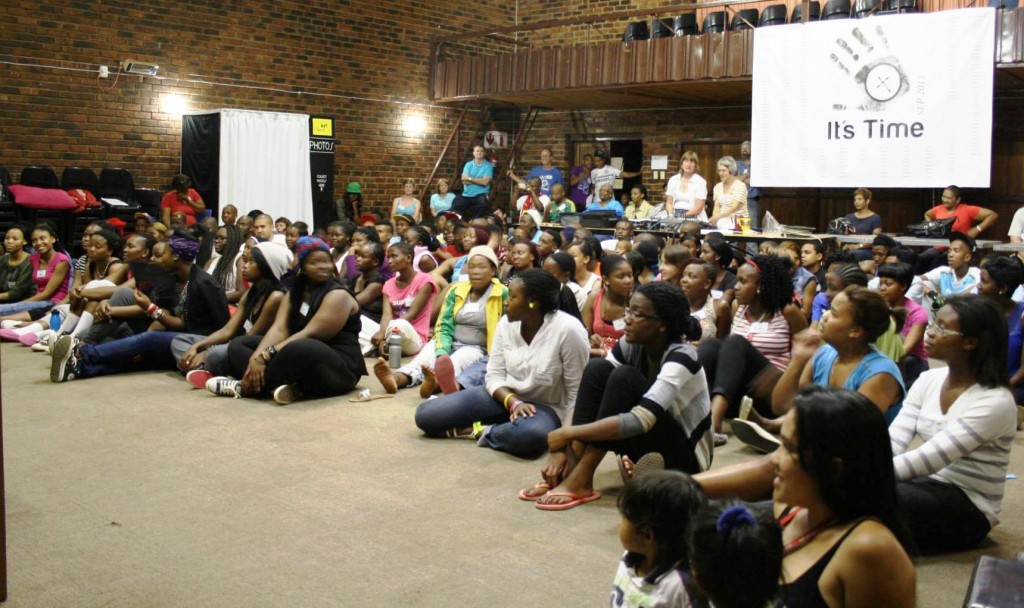This article by Gary Deddo is the first in a 6-part series addressing the important, yet often misunderstood, topic of the kingdom of God. For additional articles in this series, click on the corresponding number: 2, 3, 4, 5, 6.
Introduction
Down through the ages, the kingdom of God has been the focus of much Christian teaching, and rightly so. As a result, controversy has arisen, particularly in the 20th century. Consensus is hard to come by in large part due to the volume and complexity of the biblical material and the many theological themes that intersect at this topic. Also at work are wide differences of theological commitments and assumptions that scholars and pastors bring to the task and that then lead them to offer a wide range of conclusions.
For the purpose of growing our faith in understanding, I will review in this six-part series the central issues related to the kingdom of God. I’ll be drawing on the scholarship and perspective of others who share the same basic historic orthodox Christian faith that we in GCI profess—a faith that is grounded in Scripture and interpreted with Jesus Christ at its center. He is the one who leads us in our worship of the Triune God who is Father, Son and Holy Spirit. This incarnational and Trinitarian approach, while faithful, will not directly answer every question we might have concerning the kingdom of God. But it will provide a secure foundation and a reliable guide for pursing a faithful understanding.
Over the past 100 years, there has been a growing consensus on central issues among those involved in biblical studies who share those fundamental theological convictions that align with our own. Those convictions involve the reality and reliability of biblical revelation, a sound approach to biblical interpretation (see the series, “Scripture: God’s Gift” at update.gci.org/2013/04/scripture-gods-gift/) and the basics of Christian understanding (doctrine) concerning such matters as the divinity of Christ, the triune nature of God, the centrality of the gracious work of God fulfilled in Christ through the Holy Spirit, and the redemptive working of God in and through history to bring it to its consummation—its God-given purpose or telos.
While there are many scholars from whom we could benefit, two companion guides seem to be particularly helpful in putting the myriad pieces of the biblical evidence concerning the kingdom together: George Ladd, writing from the perspective of biblical studies; and Thomas F. Torrance, writing from the perspective of theology. Of course, both of these scholars have learned from many others and draw on and refer to them. They have done a tremendous amount of sifting through the larger body of biblical and theological studies. They give primary weight to those whose understanding comports with those more foundational biblical and theological assumptions mentioned above and who seem to offer the most coherent, comprehensive and consistent arguments concerning the kingdom of God. I will point out a number of the most important aspects of their conclusions that contribute to our growing faith and deepening understanding. [1]
The centrality of Jesus Christ
Ladd and Torrance have both made it emphatically clear that the biblical revelation, in no uncertain terms, identifies the kingdom of God with the person and mission of Jesus Christ. Jesus Christ himself embodies and brings the kingdom of God. Why? Because he is the King of all creation. His ministry as mediator between God and creation involves kingship as well as priestly and prophetic elements. The kingdom of God is real and actual in and through Jesus Christ, since he reigns wherever he is. The kingdom of God is his kingdom. Jesus tells us so: “I confer on you, just as my Father has conferred on me, a kingdom, so that you may eat and drink at my table in my kingdom, and you will sit on thrones judging the twelve tribes of Israel (Luke 22:29-30; NRSV throughout except as noted).
At another time Jesus declares that the kingdom of God belongs to him. He says, “My kingdom is not from this world” (John 18:36). So the kingdom of God cannot be understood apart from who Jesus is and what his entire mission is about. Any study of Scripture or any theological synthesis of the exegetical material that does not interpret the kingdom of God on the basis of the person and work of Jesus Christ will be off-center. It will end up at a different place than one that operates from this living center of Christian faith.
Working from that center, what can we begin to understand about the kingdom of God? We should first note that it is Jesus himself who announces the arrival of the kingdom of God and makes this a comprehensive theme of his teaching (Mark 1:15). Jesus brings with him the actual presence of the kingdom, not just a message about the kingdom. The kingdom of God is operating wherever Jesus is—because he is the King. The kingdom of God has its reality in the living presence and activity of King Jesus.
Following on that point, then, what Jesus says and does conveys the character of his kingdom. The kingdom he offers has a character identical to his own. Jesus offers a certain kind of kingdom, one that embodies his own character and purpose. Our ideas of the kingdom of God then must cohere with who Jesus is. Everything about it must be redolent of him. It should look, sound, act, smell and carry itself in a way that points us to and reminds us of him so that we get the idea that this kingdom is his—it belongs to him and has his fingerprints all over it. The implication of this connection is that the kingdom of God is primarily about the rule or reign of Christ and not so much, as it has been put, about a realm or a spatial or geographical location. Wherever Christ’s lordship is operating according to his will and purpose, there is found the kingdom of God.
More particularly, his kingdom must have to do with his redemptive purposes and so be bound up with his incarnation, vicarious life, crucifixion, resurrection, ascension and return for us, and for our salvation. That is, his rule as King cannot be understood apart from his revelatory and mediating ministry of also being Prophet and Priest. All three of these Old Testament offices, represented by Moses, Aaron and David are uniquely combined and fulfilled in him.
The purpose of his rule and will is to bring his creation into and under his gracious protection and beneficence, that is, into fellowship, communion and participation with him by reconciling us to God through his self-offering. The ultimate result of being under his rule is for us to share in his rule and experience all the benefits of his kingdom. And this rule will be characterized by God’s own love for us in Christ and worked out in us by the Spirit. Love of God and love of neighbor in the way Jesus embodied it will be marks of participating in his kingdom. The kingdom of God is a fellowship, a people, a community in communion with God through Jesus Christ and so with each other in the Spirit of Jesus Christ.
But such love in fellowship, as shared in Christ, will emanate from a lived trust (faith/belief) in the redeeming, living God and his rule being continually exercised by Christ. So faith or belief in Jesus Christ will necessarily bring about involvement in his kingdom. This is because Jesus not only proclaims the nearness of the kingdom of God as he draws near, but he also calls for the response of belief (trust/faith) in its presence accompanying him. So we read: “Now after John was arrested, Jesus came to Galilee, proclaiming the good news of God, and saying, ‘The time is fulfilled, and the kingdom of God has come near; repent, and believe in the good news’” (Mark 1:15). Belief in the kingdom of God cannot be separated from faith in Jesus Christ. Putting our faith in him means putting our trust in his rule or reign, that is, in his fellowship-creating kingdom. To love Jesus and the Father through him is to love and trust in all his ways that are embodied in his kingdom.
Jesus is King of kings over all the universe
The kingdom reign of Jesus Christ is universal and unrivalled. There is no corner of the cosmos that does not fall under his redemptive sway. So Jesus proclaims that all authority has been given him in heaven and on earth (Matthew 28:18)—that is, throughout all creation. All things were created through him and for him, notes the apostle Paul (Colossians 1:16).
Echoing back to God’s promises to Israel, Jesus Christ is King of kings and Lord of lords (Psalm 136:1-3; 1 Timothy 6:15; Revelation 19:16). The extent of his reign corresponds exactly to who he is: the one through whom all things were made and who upholds everything in existence by his power and life-giving will (Hebrews 1:2-3; Colossians 1:17).
It should be evident that this Jesus, the Lord of the universe, has no equal—no rivals, neither in terms of creation nor our great redemption. While there were contenders, pretenders and usurpers who had no power nor will to create or give life, Jesus has overcome, has vanquished, all enemies who refused his reign. As the incarnate agent of the Father in the power of the Spirit, this Son opposes all that opposes his good creation and God’s good purposes for all creation. The strength of his opposition to all that would maim and destroy his good creation and deviate from his glorious ends is proportional to his love for his good creation. Were he not to oppose that which would undo his creation, he would not be its loving Lord. This Jesus with his heavenly Father and Holy Spirit is implacably opposed to all evil that distorts, twists and destroys life and loving relationships in fellowship first with him and in turn with each other and creation. To bring about his original ultimate purposes, all opposition to his rule and right must submit in repentance or be undone. Evil has no future in the kingdom of God.
So Jesus regards himself and is depicted by the New Testament witnesses as a redeeming victor who delivers his people from all evil, all enemies. He sets the captives free (Luke 4:18; 2 Corinthians 2:14). He transfers us from the kingdoms of darkness to his kingdom of light (Colossians 1:13). He “gave himself for our sins to set us free from the present evil age, according to the will of our God and Father” (Galatians 1:4). It is just in this sense that Jesus has “overcome the world” (John 16:33 NIV). And in doing so, he is “making all things new” (Revelation 21:5; Matthew 19:28). The cosmic scope of his reign and the absolute banishment of evil under his Lordship describe beyond our imaginations the wonder of his gracious kingdom rule.
Next time, in part two, we will discuss how the kingdom is present in two major phases.
______________________
[1] For the relevant works of Thomas F. Torrance see his two volumes, Incarnation: The Person and Life of Christ and its companion Atonement: the Person and Work of Christ. For the relevant work of George E. Ladd, see his A Theology of the New Testament. It should be noted that we are under no obligation to slavishly follow either of these men’s teachings and may depart from any particular point if compelled by good reasons that are backed by biblical revelation, and when there seems to be a better alternative theological understanding.















